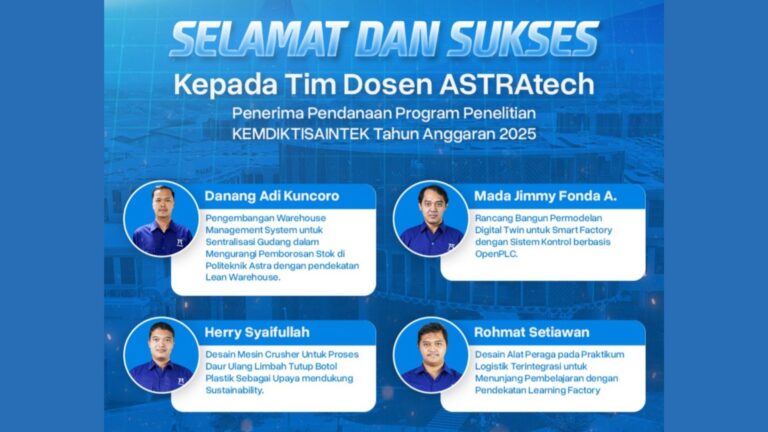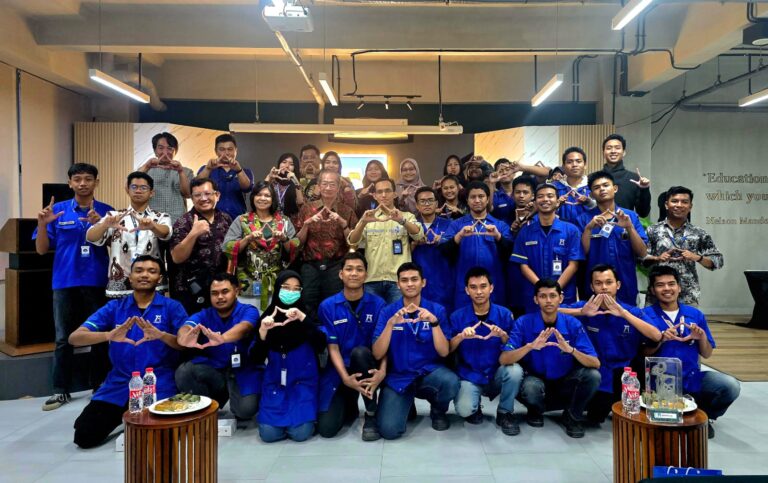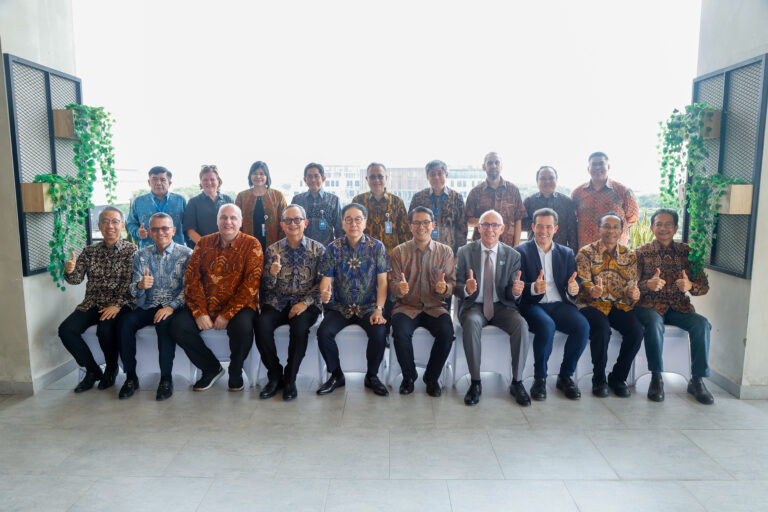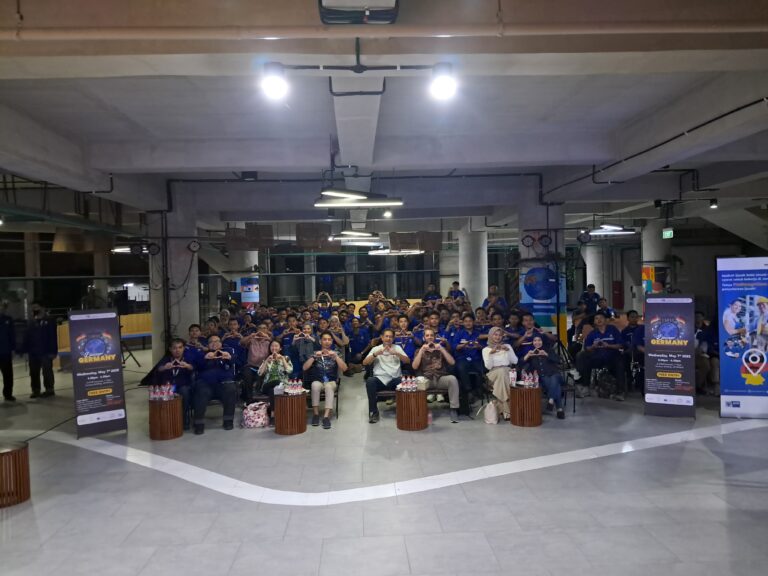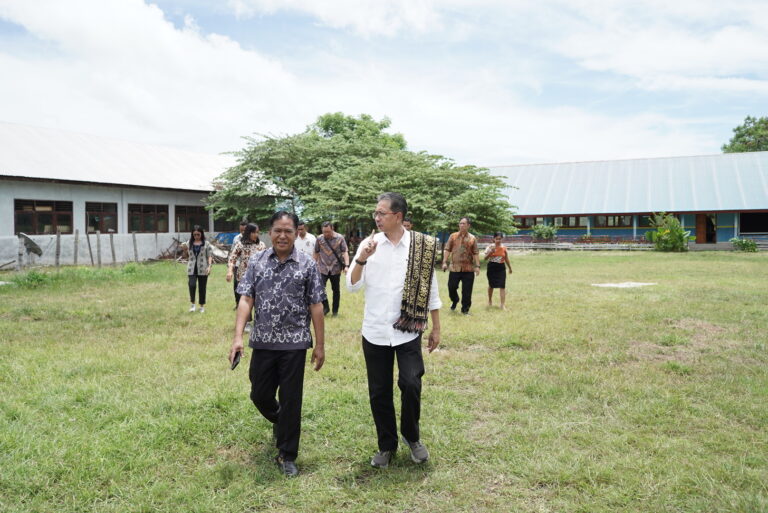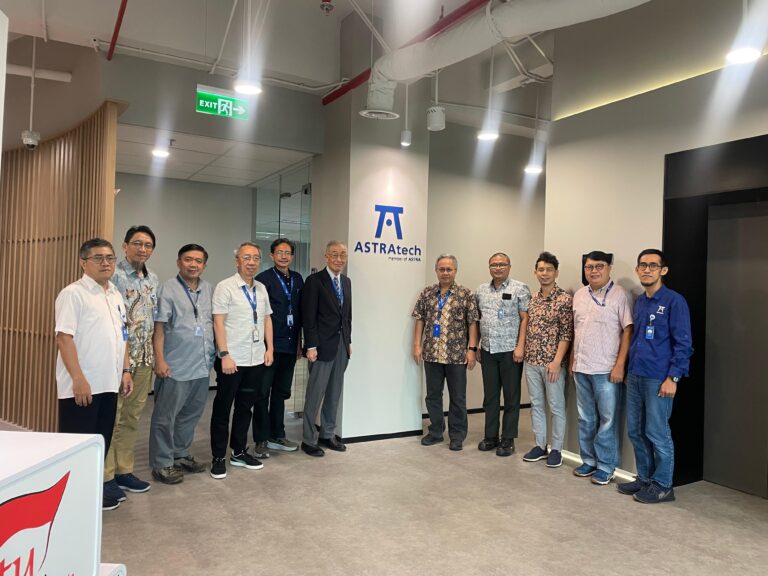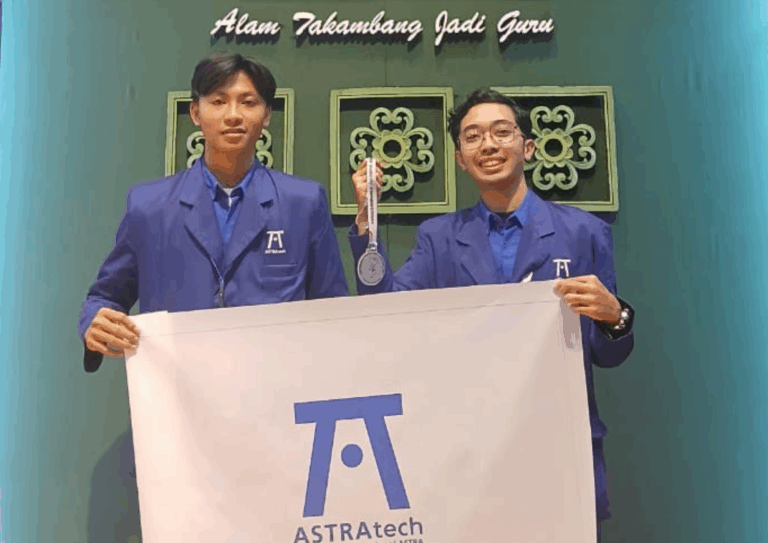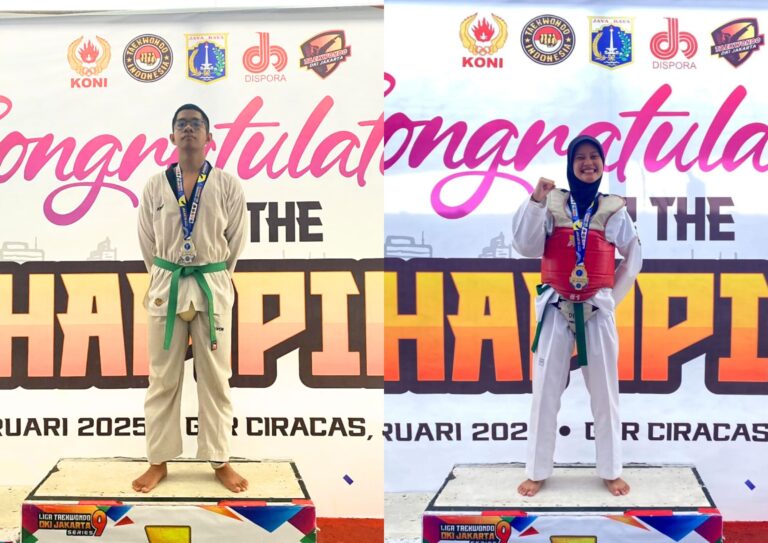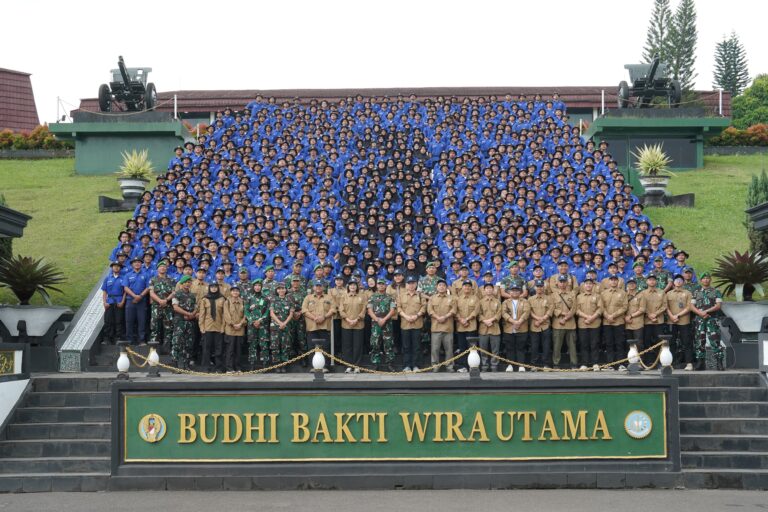Following up on the visit of Deputy Director I of Polman Astra, Tonny Pongoh to KOSEN Kumamoto Japan in the middle of 2016, on November 2, 2017 a collaboration was signed between KOSEN Kumamoto Japan and Polman Astra. The Polman Astra Delegation was represented by the Director of Polman Astra, Tony Harley Silalahi who was accompanied by Y.C Sutama, Head of the Automotive Engineering Study Program. The MoU itself includes the development of collaboration, especially for the research and development of Vocational Education.
After World War 2, Japan work so hard to rise from difficult conditions in a short time. For this reason, the Japanese government has done many initiatives, one of them are establishing KOSEN which is a school to prepare engineers and labors ready for Japanese industry, so no wonder many people see KOSEN as Japanese-style vocational education. Unlike in Indonesia where mostly familiar with senior/vocational high school and Associate, at KOSEN, graduates of secondary schools (junior high school in Indonesia) can continue to KOSEN for 5 years in one package. The package can guarantee the continuous integration of the curriculum and the time spent by students to learn and develop technology will be more effective.
Prof. Matsumoto, one of the KOSEN lecturers who had helped in Indonesia, said that education at Kosen, besides focusing on practice, it also strengthening theories and concepts to preparing students to have a strong theoretical foundation so that after graduating and working in industry and then there is a technological change, they can adapt quickly because they have a good theoretical and conceptual foundation. This is also can be seen from the teachers that mostly have PhDs and professors, even 99% have the title of Doctor of Engineering, based on their expertise, this certainly guarantees the theory that they apply when they teaching the students, and they are also required to be able to implement their knowledge in laboratories or workshops that provided for each expertise.
Tonny Pongoh explained that the Japanese vocational education system was different from the vocational system in Switzerland or Germany. They emphasize the balance between theory and practice. If Polman Astra could design a system that combine the two systems, it would have a positive impact on Polman Astra graduates because it will be accepted by industries in Indonesia affiliated with Japan or Europe. “The signing of MoU is the commitment of Polman Astra to support the industry through the education, and SEAMEO (The Southeast Asian Ministers of Education Organization) as an institution in the Southeast Asian region that collaborate with the Japanese KOSEN gives high appreciation for this step. Until today, Polman Astra has become the only institution that has actualize this collaboration in the form of an MoU” said Tonny Pongoh as a representative of Polman Astra that are close to SEAMEO.
After the MOU was signed, Tony Harley Silalahi, Director of Polman Astra and Y.C Sutama, the Head of the Automotive Engineering Study Program observed the facilities at KOSEN Kumamoto, the Kumamoto campus and Yatsushiro campus. “The facilities are great and complete with a Student Body that is not too big (600 people). The Yatsushiro campus is around 12 hectares, with several sports facilities, a dormitory for 300 students. In some laboratories where lecturers are teaching, it appears they only teach 7 students. so that every student can get intensive attention,” said Tony Harley Silalahi after visited the facilities on the Yatsushiro campus. “KOSEN graduates have 3 alternatives after graduation, they can immediately work, or continue studying at university but directly enter the 3rd year or continue to study at KOSEN for higher courses which are equivalent to a bachelor’s degree (S1)” continued Tony Harley Silalahi. Surabaya State Polytechnic is a Polytechnic that collaborated with KOSEN, starting from the exchange of teachers and research. No wonder it is seen as one of the best polytechnics in Indonesia.
Tony Harley Silalahi emphasized that this MoU shouldn’t be merely ceremonial, so he encourage all civitas academics of Polman Astra to continue developing technology, doing more research and vocational learning. In the short term the development of the collaboration domain can be focused on Automotive and Mechatronics Technology. Y.C Sutama is currently in Kumamoto to discuss with the Lecturer and also to see first the activities of “Tri-Dharma” at KOSEN.

